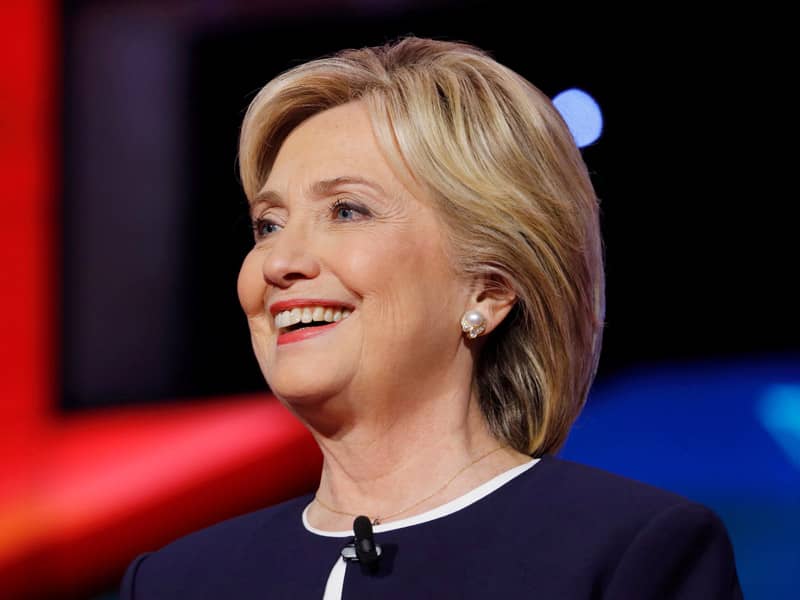Not really.
President Bush, for instance, left out something rather important. The Republican Party platform endorses a constitutional amendment banning virtually all abortion - even those occurring in the first few weeks of pregnancy. The platform endorses what's known as the "Human Life" amendment, which defines life as beginning at conception.
Bush's failure to mention this small detail was probably not a stress-related oversight. GeorgeWBush.com doesn't mention it either.
Kerry left out something important, too. Though he has been a pro-choice purist during the campaign, in 1997 he voted for Sen. Tom Daschle's "comprehensive abortion ban act of 1997" which would have outlawed abortions on "viable" fetuses. Most medical experts believe that fetuses usually become viable by the beginning of the third trimester.
The ACLU attacked the bill as "unconstitutionally narrow" because it didn't allow enough health-of-the-mother exceptions. (Republicans opposed the Daschle amendment too, ostensibly because it gave too much authority to doctors to determine "viability," but more likely because the Daschle amendment could have derailed the partial-birth ban, which seemed such a political winner.)
Two pro-life academics Stephen C. Meyer and David K. DeWolf wrote in the Wall Street Journal that the Daschle amendment would have stopped more than 10,000 abortions each year. (By comparison, estimates for partial birth abortions range from a few hundred to 1,500). The writers declared, "For Americans who want to limit abortion on demand, a historic opportunity stands open in Congress. Whether pro-life legislators seize this opportunity will depend on whether they prefer symbolic victory or substantive reform."
Had the Daschle-Kerry approach been in effect during the last four years, there would have been roughly 40,000 fewer abortions than occurred under Bush!
Suffice it to say, Kerry did not mention this in the debate and I couldn't get the Kerry campaign to say whether he still agrees with that 1997 vote.
Why do the campaigns obscure their positions?
Though President Bush has of late remained quiet on the ban, in earlier years he has said he must first change public opinion before more dramatic steps could occur. Some conservatives have said this strategy is working: the partial birth issue is "the Uncle Toms Cabin of the abortion debate" - the extreme example that will turn public opinion against a horrible evil.
But there's a flaw in the analogy: abolitionists made no secret of the fact that Uncle Toms Cabin proved the need to, well, abolish slavery. Bush, by contrast, forgets to mention that part. More likely, he simply doesn't want pro-choice voters to know.
Meanwhile, he uses targeted advertisements in pro-life counties and highly symbolic language to signal to pro-life voters that he's one of them. Even his cryptic reference in the second presidential debate to opposing judges like those who gave us the 1857 Dred Scott decision may have been part of the abortion calculus. To most Americans, the Dred Scott decision (which decreed that slaves were, legally speaking, property not human beings), is ancient history. But it is commonly cited by pro-life activists as a near-perfect analogue to the Roe vs. Wade case. In all likelihood, Bush's mentioning of Dred Scott was intended to excite not blacks but pro-life voters.
Kerry's reticence is a bit more mysterious. Early in the campaign, his campaign seemed to operate on the assumption that the only people who really base their votes on abortion are at the extremes. They weren't going to win hardcore pro-life voters, they figured, so their first priority was to reach pro-choice soccer moms and take in feminist pro-choice campaign contributions.
More recently, the campaign has become more conscious of an awkward fact on the ground. Catholics are an important voting bloc in battle ground states. The Catholic percentage of the electorate in key states: Pennsylvania (30%), New Jersey (45.9%), Ohio (28%), Michigan (28%), Wisconsin (34.4), Minnesota (28.7%) and New Hampshire (38.2%).
Catholic politics are complicated. Many Catholics don't care much about abortion as a political issue and many are pro-choice. But pro-choice Catholics seem far more conflicted about it than other pro-choice voters: 73% oppose partial birth abortion, more than the population as a whole. Many other Catholics are liberal on social and economic issues but pro-life on abortion, and therefore conflicted about whether to vote for Kerry.
So far, Kerry has tried to solve this political riddle symbolically not substantively. His strong statements during the debate that even though he was pro choice he held deep "respect" for the pro-life views of the questioner (debate two) and the Catholic bishops (debate three) was an attempt to show he's not emotionally hostile to the pro-life position. He's attempting to appeal to conflicted Catholics by showing he's angst-ridden, too.
It's hard to know based on these positions what these candidates would actually do as President. Is Bush really a right-wing pro-life hardliner who's kept his real views quiet so he can be re-elected and then ban abortion and appoint a gaggle of Scalias to the court? Or is he a political pragmatist who has no intention of banning abortion but just wants religious conservatives think he will?
Is Kerry a doctrinaire pro-choice purist who only voted for the Daschle amendment to give himself cover? Or is he actually a centrist who will embrace compromise once he's elected and needn't fear the wrath of pro-choice activists?
Given how late it is in the campaign, it's strange to say: we really don't know how either of these men would approach abortion in the next four years.

